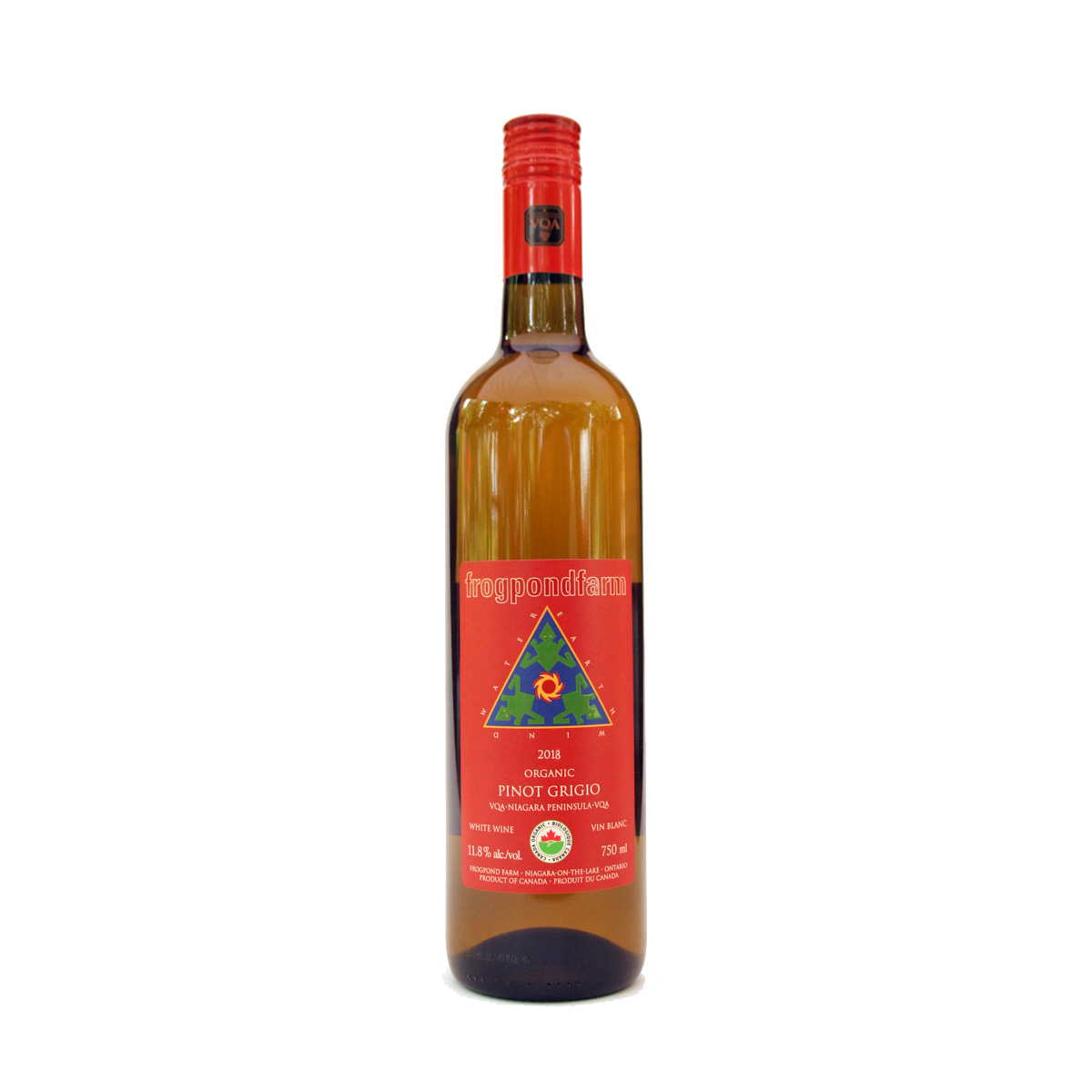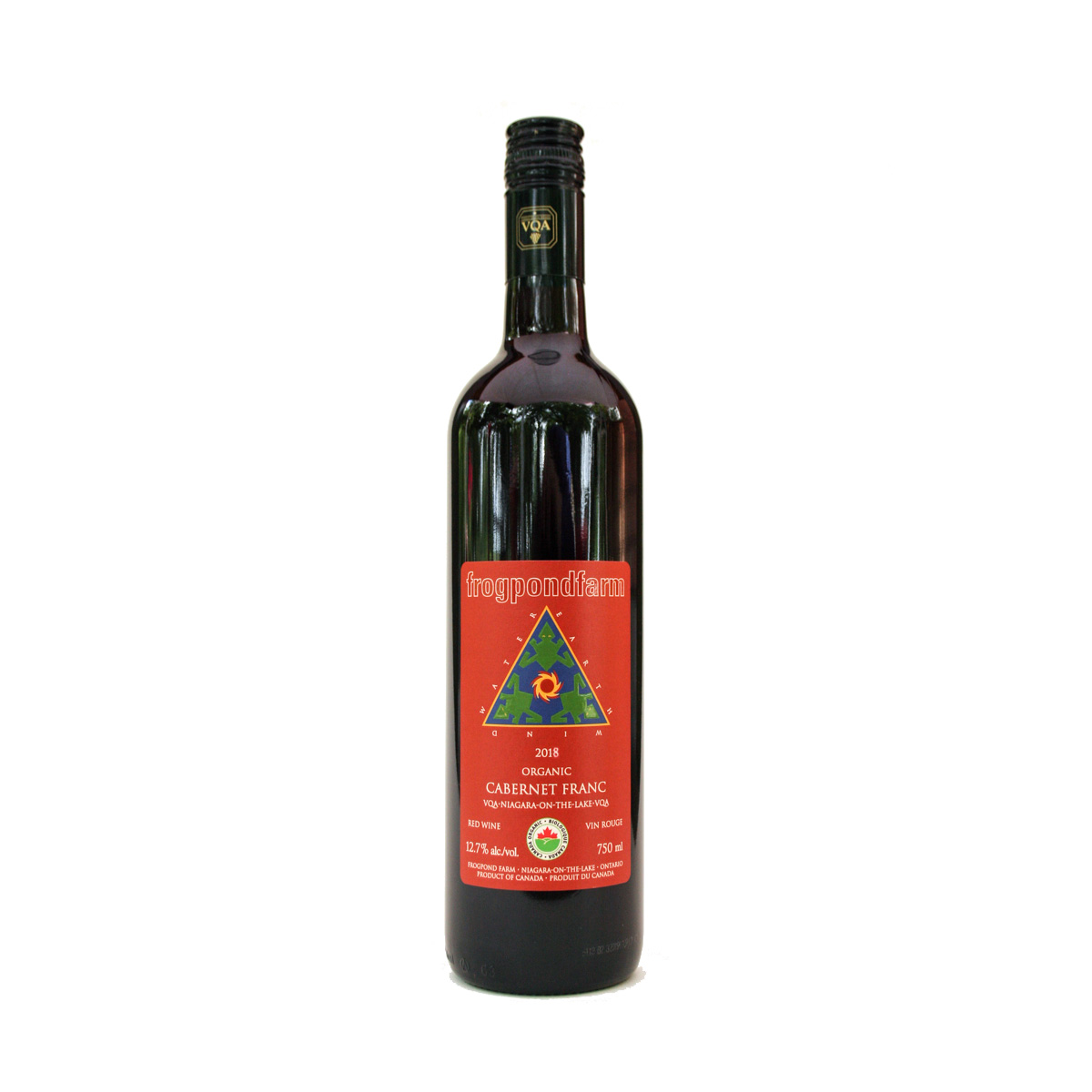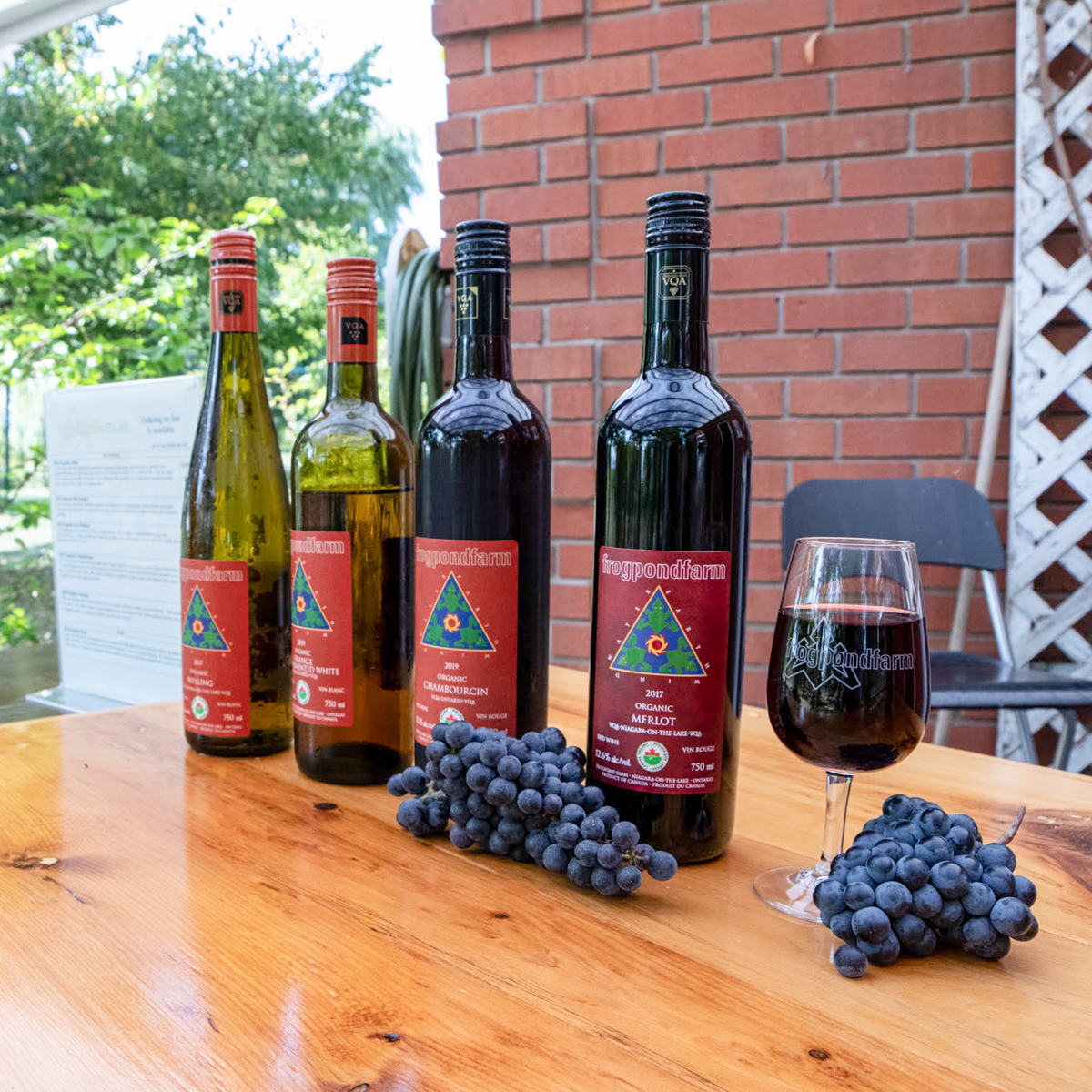Misconceptions:
Two misconceptions that we encounter daily have to do with Riesling.
The first misconception is the pronunciation of the grape variety/wine … the correct way to say it is reese-ling.
The second … is that all Riesling wines are sweet. Not true!
Perhaps this last misconception is due in part to cheap, medium-sweet Rieslings, such as Liebfraumilch and Black Tower, which flooded the Ontario wine market in the 70s and hovered around 39 g/L of residual sugar. That’s almost 10 teaspoons of sugar! By the way, those brands are still available at the LCBO.
Another reason why wine drinkers think Rieslings are sweet has to do with the high acidity inherent to this grape variety. So, in order to balance the wine, many winemakers leave some residual sugar to round out the acidity. Hence, Riesling wines can be sweet or off-dry and even dry. It depends on what the winemaker or brand desires.
An informal poll of Ontario’s VQA Rieslings shows that the wines have residual sugars between 8-24 g/L (with an average of 15 g/L). Even those labeled dry can have as much as 14 g/L of residual sugar.
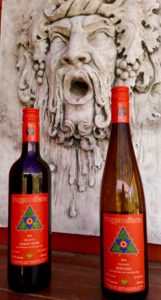
That’s where we are different. Frogpond Farm Organic Riesling has 2 g/L of residual sugar.
It’s austere, perhaps too dry for many palates. But it comes from a long tradition of making dry Rieslings similar to what you would find in the Mosel and in Alsace. Germany does produce dry Rieslings, just look for Trocken on the label.
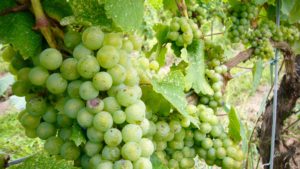
Fun Facts:
- origin of this grape variety is the Rhine region in Germany
- first plantings of Riesling may have been Wachau (Austria, 1232), Alsace (France, 1348) and Westhofen in Rheinhessen (Germany, 1402)
- Riesling becomes popular by the mid 14th century
- Riesling is grown all over the world
- according to Wikipedia, Riesling is the world’s 20th most grown variety at 48,700 hectares/120,000acres (2004 statistics)
- Riesling is considered one of the best food-pairing wines
- Riesling is a hardy grape variety and thrives in cool climates (like Ontario)
- most of Ontario’s Riesling is based on the Weis clone (21B) imported from Germany’s Mosel Valley which produces racy wines with citrus, green apple, and mineral notes
- Riesling wines are known to have a petrol nose … yup, you heard correctly. This is due to a chemical compound 1,1,6-trimethyl-1,2-dihydronaphthalene (TDN). As the wine ages, wine acid breaks down the aromatic compounds known as terpenes and creates a petrol aroma. In small amounts, this is desirable, too much and it can be a fault
- Riesling wines are aromatic (floral, fruity), delicate, nervy and have finesse
- aroma & flavour profile: lemon, lime, green apple, apricot, beeswax, white blossoms/jasmine, petrol
- other similar wines: Torrontés, Chenin Blanc, Albariño
Last Words … let’s leave that to Jancis Robinson:
Wine made from Riesling is quite unlike any other. It is generally light in alcohol, refreshingly high in fruity natural acidity … has the ability to transmit the character of a place through its extract and unique aroma and, unlike Chardonnay, is capable of ageing for decades in bottle.
Leave a comment. Tell us what you think about Riesling.


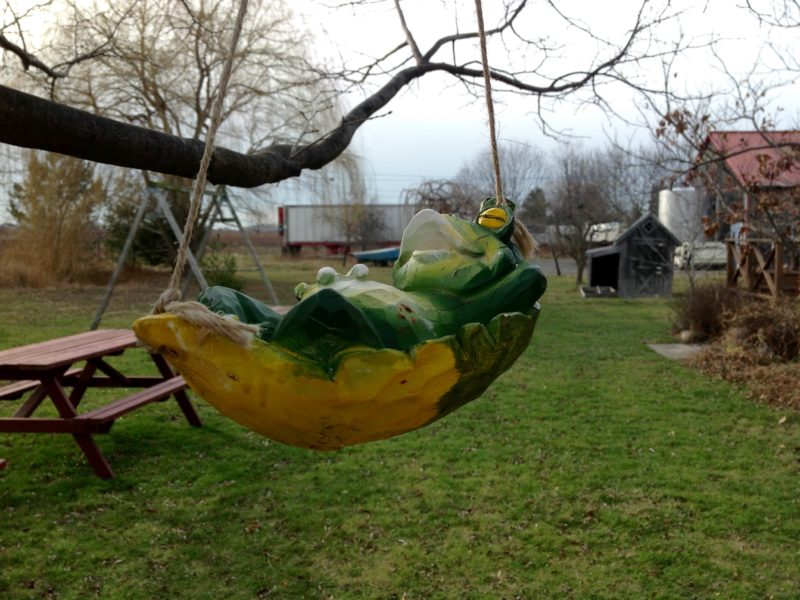
 Easter/Passover Winery Hours
Easter/Passover Winery Hours
